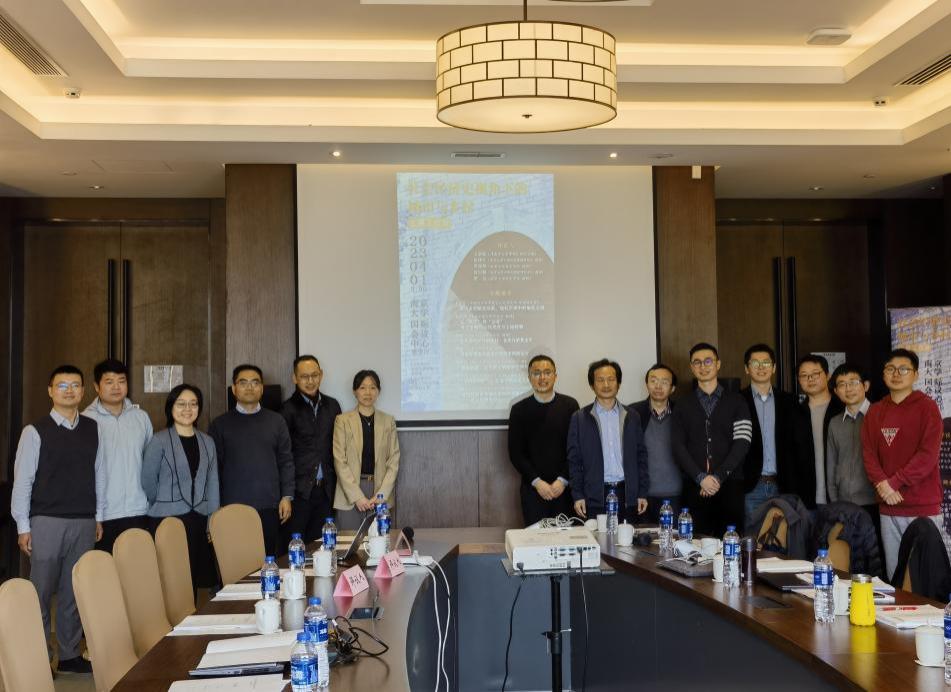Workshop on "Cities and Villages in the Perspective of Social and Economic History" was successfully held
On 1 April, a workshop on "Cities and Villages in the Perspective of Socio-Economic History" was held at the International Conference Centre of Nanjing University, jointly organized by the Department of Chinese History of the School of History of Nanjing University and the Journal of Nanjing University. Scholars from Nanjing University, Shanghai Jiao Tong University, Fudan University, Southeast University, Chinese Academy of Social Sciences and other famous universities and research institutes in China participated in this academic event.
The opening session was chaired by Professor Liang Chen of the School of History, Nanjing University. Professor Liang Chen first introduced the theme of the conference and thanked the Journal of Nanjing University for its strong support of the workshop. Mr Wang Haobin, Executive Editor of the Journal of Nanjing University, also delivered a speech and wished the conference a great success. Afterwards, the teachers present took a group photo with the Journal representatives.
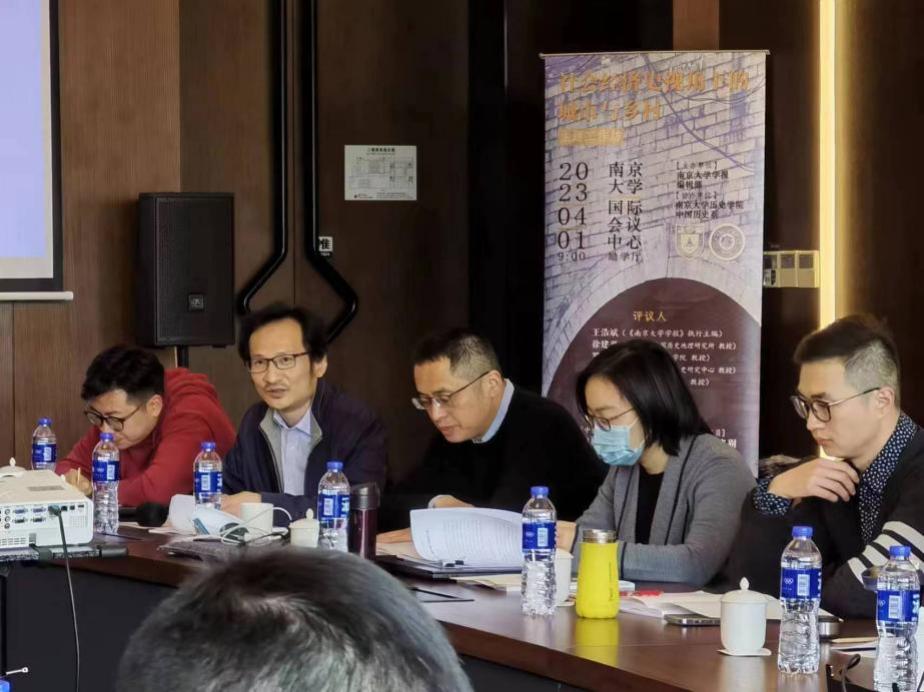
Three keynote presentations were set up for this conference. The first session was chaired by Professor Jiang Baolin from the School of History, Nanjing University, and the first presentation was given by Researcher Wang Zhenghua from the Institute of Ancient History, Chinese Academy of Social Sciences. Wang Zhenghua discussed the influence of land colour on the operation mechanism of the levy and market of land rights, and pointed out the importance of the natural geographical environment to the study of land issues, starting from the relationship between land colour and the levy, land colour and the market of land rights, and the levy system and the market of land rights. The importance of the natural geographical environment in the study of land issues was pointed out. Professors Luo Xiaoxiang and Liang Chen affirmed the innovation of the article, but considered it to be a bit long and suggested that Mr Wang should make some adjustments to the structure and layout to make the topic clearer.
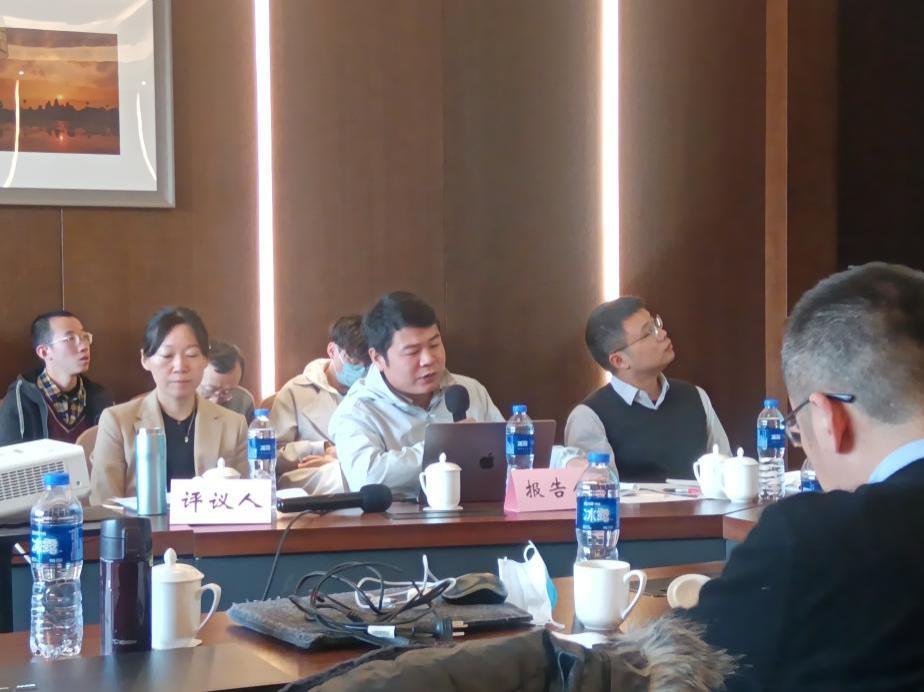
Next, Prof. Zhao Siyuan and Prof. Jiang Qin from the Department of History of Shanghai Jiaotong University gave their respective presentations. Professor Zhao Siyuan's presentation was entitled 'From "Private Property" to "Public Property": Public Expenditure and Land Control in Changshu during the Qing Dynasty', showing how land control provided continuous support for local public expenditure through the construction of shantang and yizhuang in Changshu during the Qing Dynasty. Zhao points out that the land system, local public expenditure, and the semi-formal consultation mechanism between local elites and state and county officials together formed the local political structure of the Qing dynasty. Professor Jiang Baolin argued that the article presented two novel ideas, namely, that the late Qing government ceded some of its power to the gentry in Jiangnan, and that the gentry's control over public property went beyond previous scholarly studies of shantang and yizhuang. Mr. Li found the article to be clear and informative, and the interpretation of individual cases to be in-depth. He hoped that the tension between the extension of the interests of the local gentry and the official control of the local gentry could be further explained. Professor Jiang Qin gave a presentation on "Foodstuffs, Food Orders and Consumption Levels in Modern South Zhejiang Villages", relying on the account books and deeds in the Shicang documents between 1820 and 1949, in four aspects: foodstuffs and food orders, types of foodstuffs and their distribution characteristics, food orders of villagers in rituals and daily life, rice and meat consumption and seafood prices. During the critique session, Professor Jiang Baolin raised questions about the definition of ritual and everyday scenes in the article, while Associate Professor Hu Xiaobai discussed with Professor Jiang Qin on the nature of historical materials, the calculation of Engel's coefficient in southern Zhejiang, and several points on the unit of measurement of specific foods.
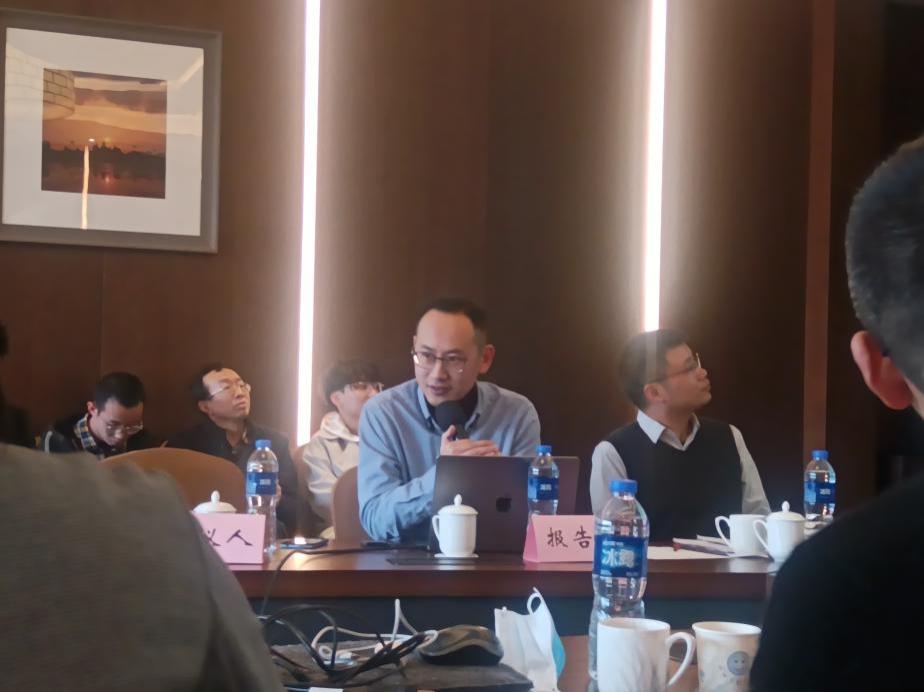
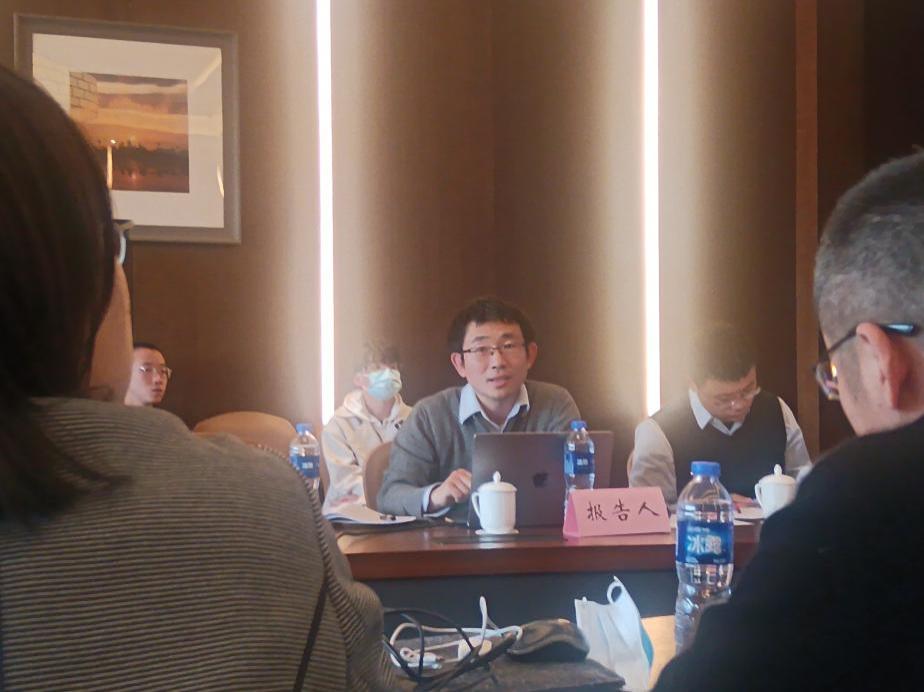
The second session was presented by Mr Li You from the Department of History of Southeast University and Associate Professor Hu Xiaobai from the School of History of Nanjing University, with Professor Luo Xiaoxiang from the School of History of Nanjing University moderating the session. He pointed out that the economic depression caused by the change of dynasties led to a deepening of the local administrative offices in Nanjing, while the economic recovery and expansion of the market space in the middle of the dynasty created a situation where the administrative space was mixed with the commercial market. The article is based on the work of Professor Luo Xiaoxiang. Professor Luo Xiaoxiang affirms the choice of topic and the focus of the article, and suggests further elaboration on the impact of Nanjing's urban peculiarities on its spatial layout. Professor Xu Jianping suggested that the spatial evolution of the southern part of Nanjing could be examined from the perspective of historical geography, showing the dynamic process of change. Associate Professor Hu Xiaobai explored the modern transformation of Nanjing's urban culture from a landscape perspective with the title 'The New Capital's Victory: Yumei Space and Landscape Creation in Modern Nanjing', pointing out that the cultural transformation of Nanjing's landscape in the modern era is typical of the macroscopic traces of the times on the one hand, while highlighting the political qualities of the city on the other. Dr Han Binwei and Professor Xu Jianping found the article fluent and well-written, and suggested that the meaning of "victory scenes" be further clarified and more visual illustrations be used in the article. Associate Professor Hu Xiaobai also responded to the question raised by Editor-in-Chief Wang Haobin and Professor Luo Xiaoxiang on 'continuity and difference between tradition and modernity'.
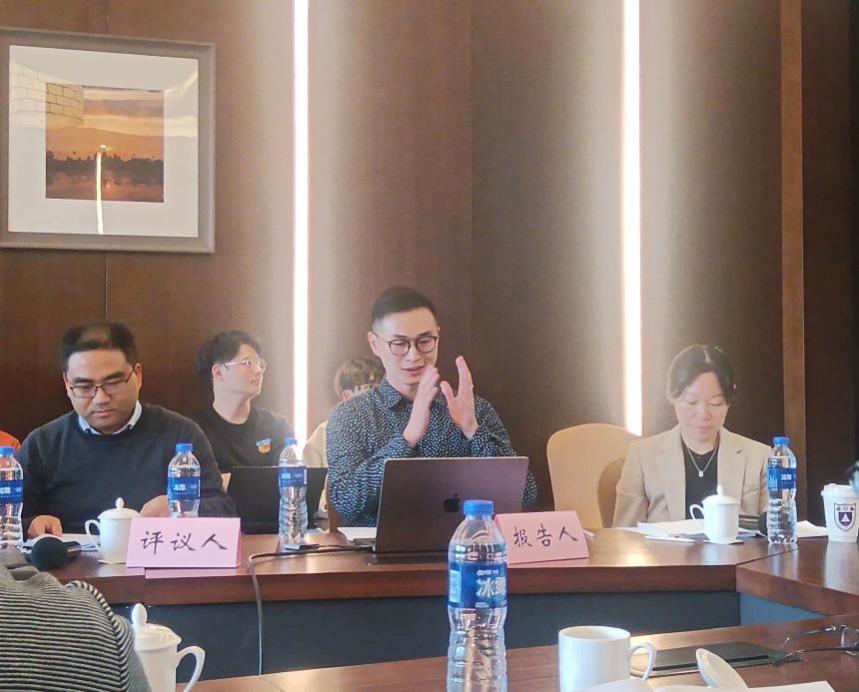
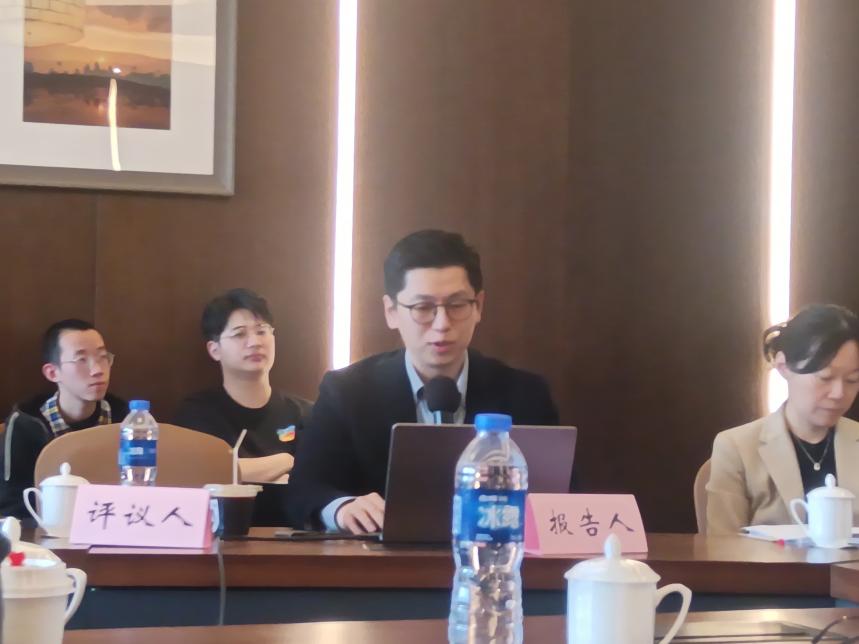
The third session was chaired by Professor Xu Jianping from the Institute of Chinese Historical Geography, Fudan University, and featured presentations by Dr Han Binwei and Researcher Ma Lin from the School of History, Nanjing University, on ""In Defence of Nanjing": The Historical Geography School and the Modern National Capital Debate", "The Multiple Dimensions of Nanjing's Flag Land Disputes in the Late Qing and Early Ming Dynasties - Centering on Baguazhou". . Dr Han Binwei reviewed the three phases of Nanjing research by members of the School of History and Geography, represented by Zhu Kezhen and Liu Yiqing, and argued that the two academic turns of the School were both a trajectory of its search for balance and development between politics and academia, and a trail of application of the introduction and application of Western geography, with Nanjing as its focus. Professor Xu Jianping believes that the paper provides a clear account of the background, process and argumentation of the members of the School of History and Geography who participated in several debates in the capital, but it is too much about the development of the School and the portrayal of Nanjing's physical geography, and could in fact be split into two articles to make the subject of the discussion clearer. Prof. Liang Chen and Mr. Li Zhou gave suggestions from the perspectives of the 'binomial family' and the use of Western geographic theory respectively. Researcher Ma Lin, on the other hand, examines the definition of banner land and the struggle between the banner people, warlords and various levels of government over the ownership of Baguazhou in the late Qing and early Ming dynasties, pointing out that the dispute over banner land in Baguazhou highlights the influence of the waxing and waning of local power on the ownership of banner land. Mr Zhao Siyuan argued that the discussion covered several perspectives and that it was necessary to clarify whether the issue was being addressed in terms of economic development or in terms of the logic of political history, and discussed with Mr Ma Lin the issue of the benefits to the flag people of Baguazhou. Mr Liang Chen suggested a comparative study of Baguazhou with other flag lands in the Nanjing area to highlight the special characteristics of one place, Baguazhou.
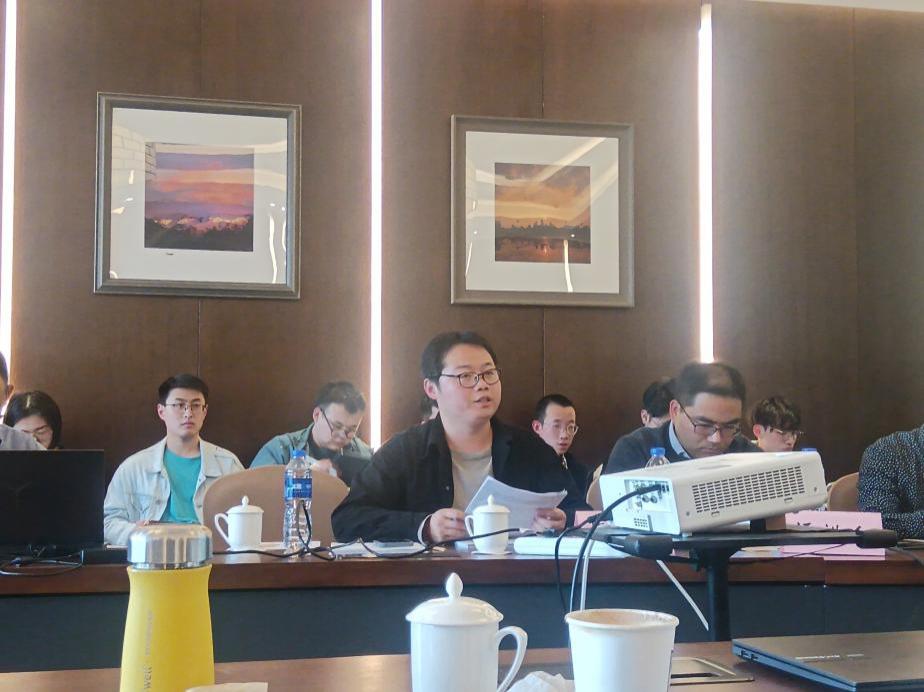
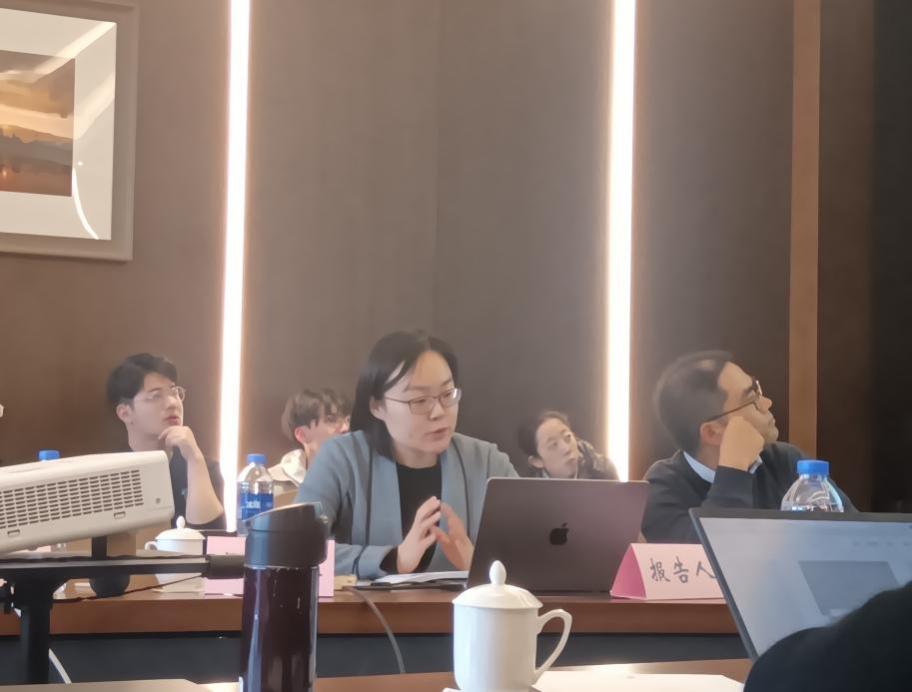
After the three presentations, a closing ceremony was held on site, chaired by Professor Liang Chen. All the scholars expressed that the conference was distinctive and beneficial. The conference lasted for a full day, with lively discussions among the young scholars and reviewers presenting their views. In addition to the participants, the workshop also attracted a large number of spectators, including students and scholars from home and abroad. The workshop was a successful attempt by the School of History of Nanjing University to build a new platform for academic exchange in the discipline of history, expanding the exchange and cooperation with famous universities and research institutes at home and abroad, and further promoting the internal construction of the Chinese History discipline in the School.

